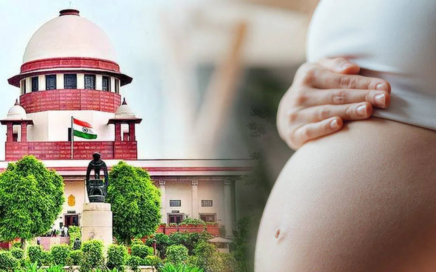
New Delhi: In a crucial development, the Supreme Court of India conducted a hearing on Friday concerning the case of alleged delaying tactics by the Speaker of the Vidhan Sabha Rahul Narvekar.
As the decision regarding the disqualification of 16 MLAs of Shiv Sena is continuously delayed, the Supreme Court once again criticized the functioning of Assembly Speaker Rahul Narvekar. On this occasion, Chief Justice Dhananjay Chandrachud gave harsh words to the Assembly Speaker. The Speaker of the Legislative Assembly should take an immediate decision regarding the disqualification of the MLAs.
The petitions of Thackeray group and NCP were heard together. Chief Justice DY Chandrachud has said that it is necessary for the Assembly Speaker to take a decision in this hearing in at least two months. During the proceedings, Chief Justice Chandrachud emphasized the need to expedite the case, setting a minimum two-month timeframe for arriving at a decision.
Also, the Chief Justice has said that someone should tell the Assembly Speaker that he needs to take this matter seriously. The Vidhan Sabha Speaker, Rahul Narvekar, received stern admonishments from the Supreme Court. It inquired whether he was playing a game of procrastination. Justice Chandrachud further underscored that this matter needed to be taken seriously.
Justice Chandrachud’s statement carried significant weight as he is the presiding judge in this case. He also noted that a specific timeline for issuing an order should be established during Tuesday’s hearing (October 17). In the event that a definite timeline is not proposed by the Vidhan Sabha Speaker, the Supreme Court will establish its own deadline, as per our pronouncements.
The Speaker’s reluctance to provide a specific timeline for the hearing’s conclusion did not go well with the Supreme Court, as expressed by the Chief Justice. However, it remains unclear what role the Vidhan Sabha Speaker will play following the Supreme Court’s directions.
The Supreme Court’s decision to address the contempt case against the Vidhan Sabha Speaker holds immense significance. The outcome of this case could potentially have far-reaching consequences on the separation of powers between the legislative and judicial branches of the government.
It is vital to understand that the position of the Vidhan Sabha Speaker is an integral part of parliamentary democracy, and as such, setting a definite timeline for the case is of paramount importance. In the absence of a specified timeframe from the Speaker, the Supreme Court appears poised to assert its authority and define its own schedule for the case’s resolution. The ultimate decision regarding the contempt charges against the Speaker will significantly impact the state of Maharashtra’s political landscape and legal framework.
















